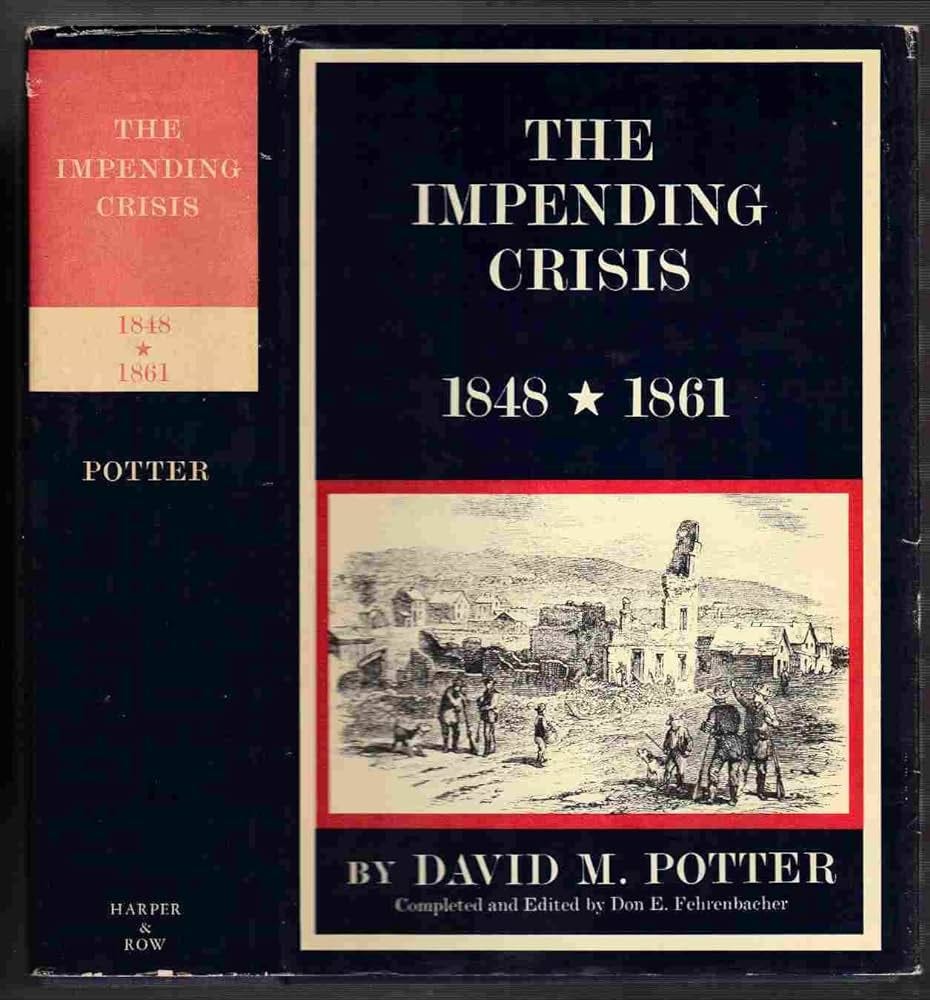David M. Potter and The Impending Crisis, 1848-1861
part one
When David Morris Potter died in 1971, he was president of both the American Historical Association and the Organization of American Historians, the two largest associations of professional historians in the United States. His comprehensively researched and exceptionally penetrating books, articles, and lectures on the South, the causes of the Civil War, the American character, the writing of history, and other subjects convinced many of Potter’s colleagues that he may have been the greatest American historian of the mid-twentieth century. 1
In 1954, David M. Potter began an analysis of the Union's breakup before the Civil War but died before completion. Don E. Fehrenbacher finished and edited the work, published in 1976 as The Impending Crisis, 1848-1861.
Potter, with a discerning eye, held to delve into history, one must strip away personal and present-day veils, peering instead through the eyes of those who lived it. Likewise, Douglas Southall Freeman, in his military history, utilized the "fog of war" method, focusing solely on the knowledge available to historical figures, seeking understanding amidst their own bounded realities.
Aerostat View
The Impending Crisis, 1848-1861 provides an in-depth examination of the events, political climate, and key figures leading up to the American Civil War.
Potter primarily focuses on political aspects while exploring the paradox between American nationalism and escalating disruptive sectionalism. He examines the expansionism of Manifest Destiny and the influence of the slavery issue on sectionalism, which led to isolation and conflict between the North and South, transforming political action from a mode of accommodation to combat.
The 1860 election, suggested by Potter as essentially two separate elections for the North and South, marked a significant polarity, followed by the nation's breakup. Despite his focus on disruptive sectionalism, Potter acknowledges unifying elements and shared values between the North and South. He rejects the notion of them being distinct civilizations by the decade's end, despite cultural differences, and contends that "Southern nationalism" stemmed from resentment, not a separate cultural identity. Even without the unwritten final chapter, Potter’s perspective on the Civil War's causes is evident.
Part 2 is awaiting its dawn in the yet-uncarved epochs ahead: Chapter 1: American Nationalism Achieves an Ominous Fulfillment




Always interesting when I run across German histories that have cause to cite civil war literature-- this is the one that seems to have their consensus approval.